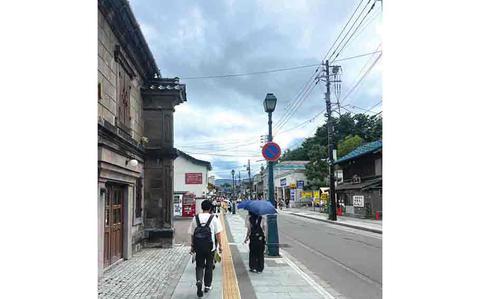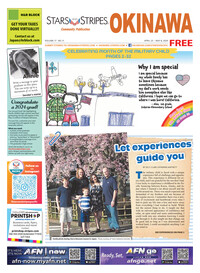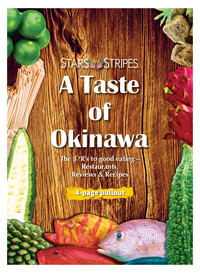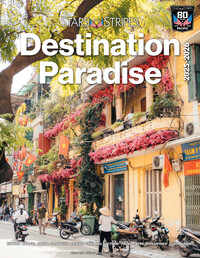- Theaters
- U.S.
- Middle East
- Europe
- Asia-Pacific
- Americas
- Africa
- Veterans
- Map Of Memorials
- News
- VA Loans
- Jobs
- Obituaries
- Living
- Entertainment
- - Movies
- - Video Games
- Europe Travel
- - Quick Trips
- - After Hours
- - Events
- Pacific Travel
- - Quick Trips
- - After Hours
- - Events
- The Meat and Potatoes of Life
- U.S. Travel
- Opinion
- Storm Tracker
- Promotions
- Rewards for readers
- Get Stripes
- Subscribe
- ePaper
- Stripes Lite
- Archives/Library
- Special Publications
- Mobile Apps
- Email Newsletters
- Digital Access
- Home Delivery
- Branches
- Army
- Marine Corps
- Navy
- Air Force
- Coast Guard
- Space Force
- Promotions
- History
- Archive Photo Of The Day
- Sports
- Europe
- Pacific
- U.S.
- Multimedia
- Podcasts
- - Military Matters
- - Force For Hire
- Out of Uniform
- Videos
- Communities
- Stripes Europe
- Stripes Guam
- Stripes Japan
- Stripes Korea
- Stripes Okinawa
- Our Other Websites
- In Memoriam
- Month of the Military Child
- Letters to Santa
- Printshop











 >
> Taste of Okinawa
Taste of Okinawa
 Best of Pacific
Best of Pacific
 Destination Paradise
Destination Paradise
 Welcome to the Pacific
Welcome to the Pacific